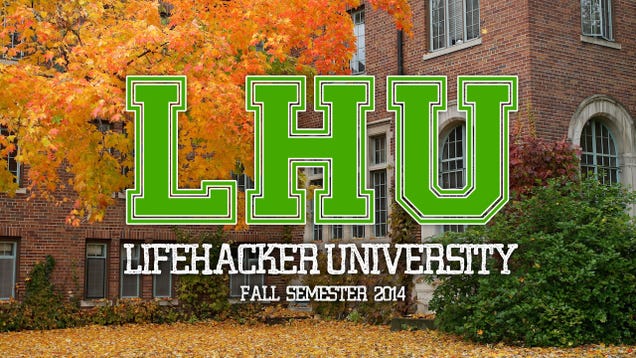Shared posts
Mind-blowing, magnified portraits of insects | Levon Biss
Check out more TED Talks: http://www.ted.com
The TED Talks channel features the best talks and performances from the TED Conference, where the world's leading thinkers and doers give the talk of their lives in 18 minutes (or less). Look for talks on Technology, Entertainment and Design -- plus science, business, global issues, the arts and more.
Follow TED on Twitter: http://www.twitter.com/TEDTalks
Like TED on Facebook: https://www.facebook.com/TED
Subscribe to our channel: https://www.youtube.com/TED
There's more to life than being happy | Emily Esfahani Smith
Mallory SolisNaNoWriMo!! It's a good excuse for storytelling.
Check out more TED Talks: http://www.ted.com
The TED Talks channel features the best talks and performances from the TED Conference, where the world's leading thinkers and doers give the talk of their lives in 18 minutes (or less). Look for talks on Technology, Entertainment and Design -- plus science, business, global issues, the arts and more.
Follow TED on Twitter: http://www.twitter.com/TEDTalks
Like TED on Facebook: https://www.facebook.com/TED
Subscribe to our channel: https://www.youtube.com/TED
Marvel Studios announces Phase 3 movies + Expected Release Dates
Yesterday at a special event, Marvel announced their upcoming phase 3 movies, you can check ‘em all out below along with their expected release date.
Which one are you most excited to see? Why? LET US KNOW IN THE COMMENTS!








[Via Free Comic Book Day on Facebook]
Prepare Your Motorcycle for Winter with Help from This Graphic
Whether you plan on riding your bike in the cold weather, or putting it away in storage, this graphic explains all the preparations you should handle before the cold creeps up on you.
It's not winter yet, but it's certainly on its way, and do-it-yourself blog Fix explains some important things you need to do before you storing motorcycles, mopeds, and scooters. Things like preventing engine rust by coating it with oil, checking the antifreeze levels once it cools down, removing spark plugs, and draining the fuel tank. Preparing your bike properly before storage will ensure that it will work perfectly once the weather warms up. If storing your bike is not something that's possible—or you can't stand to be away from your hog—the graphic also has some great tips on riding safely in cold, icy weather.
Winterize Your Motorcycle | Fix

Plan Your Free Online Education at Lifehacker U: Fall Semester 2014
Mallory Solis@Molly - The Ohio State University - Human Trafficking

Your education doesn't have to stop once you leave school. We've put together a curriculum of some of the best free online classes available on the web this fall for our latest term of Lifehacker U, our regularly-updating guide to improving your life with free, online college-level classes. Let's get started.
Orientation: What Is Lifehacker U?
Whether you're headed to college for the first time or you're back in classes after a relaxing summer vacation, or long out of school and interested in learning something new, now's the time to turn it on and amp up your skills with some interesting and informative classes and seminars. Anyone with a little time and a passion for self-growth can audit, read, and "enroll" in these courses for their own personal benefit. Schools like Yale University, MIT, Stanford, the University of California at Berkeley, and many more are all offering free online classes that you can audit and participate in from the comfort of your office chair, couch, or computing chair-of-choice.
If you'll remember from our Summer 2014 semester, some of these classes are available year-round, but many of them are only available during the a specific term or semester, and because we're all about helping you improve your life at Lifehacker, we put together a list of courses available this summer that will inspire you, challenge you, open the door to something new, and give you the tools to improve your life. Grab your pen and paper and make sure your battery is charged—class is in session!

Computer Science and Technology
- Udacity - Intro to Computer Science - Professor Dave Evans - We're going to switch up the top computer science course this term—not because CS50x isn't a great class, but it's time to mix it up a bit. In this Udacity course (and don't be fooled, while Udacity is really pushing their paid course programs, you can still take this course for free, you just don't get all of the individual guidance and tutoring help that the $150 premium price will get you) you'll learn the basics of how to program for the web, and by the end of the course you'll have built a basic social network, and a basic search engine complete with a web crawler. You'll do it all in Python, and free students will be able to follow the class along and complete activities on their own. If you shell out for it, you'll get expert help and code reviews.
- Stanford University - Cryptography I - Professor Dan Boneh - It's been a while since we highlighted Dan Boneh's cryptography course, but it's just as good now as it's ever been, and a new session is just about to begin. The course will walk you through all things encryption, starting with how two parties can exchange coded information using a basic shared key, even if an adversary is listening in to their communications. From there, the sky's the limit, and you'll learn public key techniques that offer easier secure communication, common encryption methods, and of course, how all of this is applicable in the current surveillance and data collection environment.
- ETH Zurich - Computing: Art, Magic, Science - Professors Bertrand Meyer, Marco Piccioni, and Nadia Polikarpova - Let's take a step back a bit - computer science isn't all about coding and software development, and while many of you will doubtlessly be interested in that, others may be more interested in a more basic primer to information technology, how computer technology works and what's happening behind the scenes of the most popular technologies we use, and how to demystify those high levels of technology from the near-magic they often appear to be. You will learn the basics of programming in this course—and not just how to write code, but how to develop programs that solve problems. You'll also study theoretical computer science as well—it's a great crash course for people who are interested in technology but want a course that goes from sky-level to nitty gritty in a few weeks.
- Rice University - An Introduction to Interactive Programming in Python - Professors Joe Warren, Scott Rixner, John Greiner, and Stephen Wong - Python was your favorite programming language for first-time learners, and this guided course from an all-star tem at Rice University will get you up to speed quickly with the basics, theory, and comprehensive exercises that will get you ready for real-world challenges and development tasks. The course is designed for students with little to no programming background who are looking for a way to jump into computer science in a meaningful way, and over the course of the class you'll work on a number of mini-projects, building tools and perfecting them as you learn new skills. Best of all, all you'll need for the class is a web browser.
- University of Maryland at College Park - Usable Security - Professor Jennifer Golbeck - Crypto and code are only one part of cryptography as a whole—the other side of things is, and always has been, the weaker link in the security chain: The end user. This course in usable security teaches you to approach security from a human-centric perspective, with the understanding that building secure systems also requires that you build systems that individuals and users understand and use intelligently, instead of struggling against and trying to find ways around. You won't need your programming background for this class, but you will need to come with a mind that's open to the role that design and usability play in securing information systems.
- University of California Berkeley - CS184.1x: Foundations of Computer Graphics - Professor Ravi Ramamoorthi - If the aspect of computer science you're interested in has less to do with coding and software development and more to do with graphics and imagery, this course from UC Berkeley will get you started. You'll need to bring a little programming knowledge with you to the class, but once you're in, all you need is a decent computer and some math skills to keep up. You'll learn how to make 3D scenes and images and render them in real time.
- University of Alberta - Understanding Video Games - Professors Leah Hackman and Sean Gouglas - There's a lot more to video games and video gaming than consoles, new releases, and shooting up bad guys with big guns to save the world. This course will give you the tools and literacy required to join in intelligent and informed discussions about video gaming—something that's all too lacking right now. You'll learn about the language, logic, social issues, and creation and development of video games with the help of the team at Bioware (who are close to the University of Alberta), and you'll learn how to examine video games from a cultural and intellectual perspective—to critique them as you would any other form of media. From games and culture and violence in video games to game mechanics and design, you'll cover a lot of territory in this course, but it's a must-take for anyone who enjoys video games and wants to be able to approach them more intelligently than your average YouTube commenter.

Finance and Economics
- University of Florida - Personal & Family Financial Planning - Professor Michael S. Gutter, Ph.D. - We share a lot of personal finance advice around here, and while there's a point where it all may seem to blur together, if all you're looking for is a simple, soup-to-nuts course in how to get started properly managing your money with no shame or "you should have been doing this by now" connotations, this course from the University of Florida will get you started. You'll cover the basics, like common topics in personal finance, budgeting, saving for financial goals, managing credit, and so on—but you'll do it all from a place of learning, not "do it right or your life is ruined." You'll walk through the basics of complicated topics like building and maintaining good credit, understanding risk and judging your own personal risk, investing in things like mutual funds, and more. By the end of the course, you'll have a comprehensive personal financial plan that you can put together and act on to improve your own money situation.
- Technical And Further Education (TAFE) NSW -Financial Planning - Professors Kerrie Adra and Diana Bugarcic - Financial planning—or rather, making sure you're prepared for emergencies, retirement, and even everyday demands on your wallet, aren't things that you're normally taught in school—and yet it's a skill that's essential for all of us. If you're looking for a little help from some experts, this course is angled towards people who want to be financial advisors, but will teach you the role of a financial advisor when it comes to their clients and their clients' money, as well as walk you through the advising process—including collecting useful information about your client (or rather, your) and their spending and saving habits, creating a financial plan customized for them, and then implementing it along with them. Whether you've thought about becoming a financial advisor and helping other people with their money woes, or you think you could benefit from taking an objective, third-party approach to your own finances, this course could help..
- Macquarie Graduate School of Management - Diagnosing the Financial Health of a Business - Professor Guy Ford - Did you know that you can learn a lot about the financial health of a business just by looking at the reports and documentation they submit publicly every quarter, six months, and every year? You don't have to be a fancy analyst to look over the numbers and see how things are doing, and if you've looked at the data yourself, you'll have a more informed opinion on what the analysts are saying and complaining about on TV or on the news after those reports are issued. Perhaps you have a particular company or two you're interested in, and you want to know how financially healthy it is before you invest in it, or even take a job with them. This course will walk you through how to read financial statements and earnings reports issued by companies and walk away with an understanding of what their language means, how fiscally sound and financially healthy the company is, and what its prospects for growth (or recovery) really are.
- University of South Florida - Talking Financial Literacy (iTunes U) - Professor Kathleen P. King - This lecture series was published in 2011, but the topics and information still applies today. Over the course of these 40 self-guided, self-directed podcasts, you'll tackle a wealth of topics in financial literacy, listen to interviews with people who keep the financial system ticking and hear what their advice to individuals managing their own money is, and more. The podcast series is angled towards educators, but you don't need a great depth in financial topics to understand and follow along.

Science and Medicine
- Monash University - The Science of Medicines - Professor Ian Larson - We all know that medicines work—they can help our bodies heal injuries, repel diseases, and shore up our own defenses. But how do they work? How does a compound you may swallow only a few milligrams of actually help your body in such huge, broad ways? This new course aims to explain, in a way that anyone can understand. You won't need a medical degree or background in science or medicine to appreciate the class, and you'll learn about how medicines that are key to treating some of our most critical diseases, from diabetes to heart disease, were developed, how they work, and how they work inside the body. The course is aimed at people with an interest in pharmacy medicine, but it's open to all.
- University of Alberta - Dino 101: Dinosaur Paleobiology - Professor Philip John Currie - We've learned a lot about dinosaurs in the past several years, so if you're still thinking that they were all thick-skinned cold-blooded lizards, you'll be in for a treat in this modern, up-to-date approach to dinosaur biology, based on recent research. You'll learn more about how dinosaurs actually moved around, what their bones and muscular systems were likely like, how they really reproduced and nested, and more, not to mention how fossils really form, and how many dinosaur bones fossilized in the first place. The interactive lectures are full of useful information and tons of real dinosaur bones to look at, and you won't need any background in paleontology to take the class—just a love of adventure, and hopefully of dinosaurs.
- Princeton University - Imagining Other Earths- Professor David Spergel - Using telescopes on the ground or in space (most notably, NASA's Kepler) astronomers have discovered thousands upon thousands of "earth like" planets that share many characteristics with our own Earth. Are they exactly like Earth? Likely not, but many are close enough that they warrant a close look, and may even harbor their own kind of life. What would that life look like? What's on those "other Earths," and would humans ever be able to visit, much less survive there? This course examines all of those topics, and specifically what astronomers mean when they say things like "exoplanet" or "Earth-like." You'll study elements of biology, chemistry, and geology to understand what it takes to make a planet a planet at all, much less "Earth-like," and propose hypothetical space missions to learn more about those planets by applying a little scientific thinking.
- Open 2 Study - Food, Nutrition, and Your Health - Professor Nicholas Vardaxis, PhD - We've discussed how complicated topics of food, nutrition, and health can really be, and this course aims to break down a number of those walls into simple terms that anyone can understand—all without shilling a fad diet or some "new breakthrough" that will keep you thin, trim, and fit. The course covers basic nutrition, dietary intake, eating disorders and how they stem from poor eating habits as well as social conditioning around food and health, and learning the individual science of healthful nutrition and how to apply it to your own lifestyle.
- California Institute of Technology - Ay1001x: The Evolving Universe - Professor S. George Djorgovski - We know a lot more about how the Universe formed, how it grew, and how it will continue to grow and eventually how it'll end than we've ever known in the past. This course will take you through an introductory course of the physical universe and objects you're familiar with, from quasars to black holes, all the way to dark matter and dark energy. The course is technically an introductory Astronomy class, but you won't need much in the way of background to appreciate it. Not only will you study how the Universe is changing all around us, you'll also look into how research into how that Universe is changing has grown over the years, where we've had to rethink our hypotheses, and where what we have yet to learn and discover.
- University of Hong Kong - Epidemic - Professors Gabriel M. Leung, Thomas Abraham, Benjamin Cowling, Guan Yi, Mark Jit, Tommy Lam, Marc Lipsitch, Malik Peiris, Joseph Wu, Kwok-Yung Yuen, and Maria Huachen Zhu - The rapid spread of disease is a hot topic on everyone's minds right now, from the threat of a flu pandemic to the Ebola outbreak in west Africa to antivaxxers here in the United States putting large groups of people at risk of sickness or death. This course examines the never-ending back and forth between human ingenuity and ever-evolving bacteria and viruses, along with new generations of pathogens that threaten to overwhelm our current crop of antibiotic drugs and treatments. The class also examines how infectious diseases can spread across large populations, how public health organizations prepare for and respond to disease crises, and more. There are also panel discussions and individual talks with all of the experts listed above in their own areas of expertise so you understand both the danger posed and the potential response—not to mention how you can get involved and help.
- University of Amsterdam - Solid Science: Research Methods - Professor Annemarie Zand Scholten -Recent revelations in the social sciences that few studies and experiments are ever reproduced (and others are simply impossible to reproduce) and the exposure of many social scientists as frauds has cast a shadow over the entire field of social science. However, does that mean that social science is an untrustworthy field in general, or that there's nothing to learn—or nothing rigorously scientific—about studies conducted and experiments performed in those fields? Not so—this course examines some solid methodologies to follow (and to look for) in the social sciences, along with an introduction to statistics, analytics, and the rigorous procedures and principles requires for research to be trustworthy, duplicatable, or at least reputable even if it's unable to be replicated under similar conditions. The course is aimed at people interested in the social sciences, or interested in becoming social scientists, but it's also a great look behind the curtain on how social scientists are looking to grow and learn from the recent shakeup and progress forward in a way that garners trust by the public.
- The Open University - Basic Science: Understanding Experiments - Professor Hazel Rymer - How are experiments conducted? How do scientists test hypotheses, or perform experiments to eliminate external variables? In this course, you'll learn—mostly by conducting a number of basic physics experiments on your own! You'll extract DNA from fruits and vegetables at home, observe osmosis in action, bake a potato until it meets its grisly end, and more—all in the name of science, and you'll understand how experiments are rigorously conducted, how information is gathered along the process, and how to report your findings in a meaningful way. You'll spend some time in the kitchen for this one, so you'll need a few supplies—but it's all outlined on the course homepage.
- Stanford University - Child Nutrition and Cooking - Childhood obesity is a serious problem, and not just here in the United States. Children around the world are less active and more weighty, and not in a good way—we're not talking simply about body size here either; we're discussing propensity for disease and early-onset illnesses like diabetes. So what can we do about it? This Stanford course wants to emphasize the importance of proper diet and smart shopping for parents of all ages with children of all ages. The course explains the importance of home cooking, discusses the overprocessing of many foods, how to shop smart for fresh and healthful ingredients and make quick, nutritionally balanced whole meals at home, all through a series of self-paced video lectures.

Mathematics
- Loughborough University - Getting a Grip on Mathematical Symbolism - Professor Tony Croft -If you want to be a scientist or an engineer, you'll need a lot of math—and that doesn't necessarily mean you'll love it, or be in love with it. This course is designed for people interested in scientific disciplines but who may feel shaky on some of the math that serves as the underpinnings for their discipline. The course is also useful to anyone who enjoys those scientific topics but gets lost in the weeds as soon as the math comes out to play. This course will get you familiar with the basics, but also help you understand how to think mathematically, approach complex topics and processes with a mathematical eye, and reinforce the importance of mathematics to science and engineering.
- California Institute of Technology - CS1156x: Learning from Data - Professor Yaser S. Abu-Mostafa - This course is technically a computer science class that focuses on machine learning, but it does so by teaching you how not just machines, but people learn from accumulating information. The focus of the course isn't just on learning information, but on actually "knowing," from a machine perspective. If you've ever wanted to dive into the intersection between computer science and mathematics, this course is a great place to get started. We'd suggest you audit this one first though, some students have reported that the class can be quite difficult.
- University of Massachusetts, Boston - Math Q114 Quantitative Reasoning - Professor Mark Pawlak - This short course will teach you how to apply algebraic and mathematical principles to real world situations in other disciplines. For example, the course examines the basic algebra and mathematical tools used in social, physical and life sciences, and how necessary those skills are to properly decode and understand information in those fields. You won't need a background in mathematics to make this course work, but if you're looking for a better way to approach real world scientific problems with an eye for math that doesn't involved phrases like "statistics lie," this course is for you—and when you're finished, you'll be equipped to properly parse and understand data and information you see behind headlines and study abstracts.

Social Sciences, Classics, and Humanities
- MIT - Evaluating Social Programs - Professors Rachel Glennerster and Marc Shotland - It's easy to complain that social programs cost too much and don't necessarily deliver on the good that they promise, or that they redirect money that could be spent on international aid or other services, but it's one thing to just have an unfounded opinion and another to actually quantify the good that those programs do based on actual analysis. In this course, you'll learn to examine exactly that: Evaluate social programs—specifically from the perspective of someone who's running their own program—and for anyone who has an interest in social programs and how to objectively measure their success.
- Wellesey - Introduction to Global Sociology - Professor Smitha Radhakrishnan - Part basic sociology course and part detailed look at how global perspectives and individual culture shape our sociological views of the world, this introduction to global sociology will get you thinking about where your place in society is, and how your world view is shaped by the culture in which you live. You'll learn to put yourself in the position of other people in other parts of the world and try to look objectively through their eyes and understand their world view. You'll specifically study the global garment industry, as clothing is designed in one part of the world, materials are collected in another, the clothing is made in another and the product eventually goes up for sale in yet another part of the globe for purchase. .
- Harvard University - HUM2.1x: The Ancient Greek Hero in 24 Hours (Hours 1-5): Epic and Lyric - Professor Gregory Nagy - Focusing on ancient stories like Homer's Iliad and Sappho's poems, this first five hours of a technically "24 hour" course will walk you through the ancient Greek heroes and stores on which much of western literature is afterward based. You'll study the ancient Greek hero archetype from two perspectives: the Epic, in the form of Homer's work, and the Lyric, in the form of Sappho's work, and examine the themes that run through them both, how both storytellers chose to present their characters and themes to you, and what of those themes we can easily see carried down to more recent stories today.
- Harvard University - HUM2.1x: The Ancient Greek Hero in 24 Hours (Hours 6-11): Signs of the Hero in Epic and Iconography - Professor Gregory Nagy - The second five hours of the same course above, the focus shifts away from Homer and Sappho and moves to how the Greek hero is displayed in art, iconography, and other portrayals. The course continues to touch on Homer's heroes specifically, but instead of looking at written themes, this course focuses on the visual, including liver performances and visual artwork designed both for admiration and for consumption by the masses.
- University of Liverpool - Psychology and Mental Health: Beyond Nature and Nurture - Professor Peter Kinderman - So much of psychological discussion focuses entirely on whether people "were born with" certain traits, or "developed them" over time, when there's so much more to the picture. This course aims to go beyond that simple dichotomy and explore some of the current challenges in the mental health community, and how many researchers are looking for ways to improve our overall mental health at every age. You'll discuss and learn how clinical psychologists examine, learn from, and treat their patients, and get a greater understanding of how difficult it can be to diagnose and properly treat mental illnesses. Similarly, you'll get a better understanding for how we're all influenced by life experiences over time..
- Newcastle University - Hadrian's Wall: Life on the Roman Frontier - Professor Ian Haynes - In this part history, part archeology course, you'll learn about life on the frontier of the Roman Empire, and what life was like for soldiers and civilians living on one of the most heavily fortified parts of the Roman Empire in its heyday. Hadrian’s Wall stretches over 100km, from coast to coast on the island of Great Britain, and for a time it represented the border of the Roman Empire. You'll learn more about the wall, study issues of colonization and culture conflict, read case studies about the wall, and overall immerse yourself in a period thousands of years ago both before the Roman army showed up, after they arrived, when the wall went up, and life afterward.
- James Cook University - World Music - Dr. David Salisbury - In many countries, "world music" has a stigma of essentially being vaguely "tribal" or stereotypically "other." In this course, you'll learn how to be a cultural explorer in your own community by tossing down the idea of what "normal" music is versus "world" music, and learn to hear the similarities in all of it, understand the influence of popular western musicians and composers on current forms of popular music (and the absence of that influence in other parts of the world), and learn how to explore world music in your own community and environment, and where to go to learn—and listen to—more.

Law
- Griffith University - Understanding the Origins of Crime - Professor Aaron Sell -An amazing course from the spring is back for the fall term—Aaron Sell approaches the topic of crime in human society from an almost evolutionary perspective, noting that while we can reduce crime as a chronic factor, eliminating it is a whole other issue. Crime has a place in human society, one that factors into topics like natural selection and animal behavior. The course may come off sounding a bit cold, but it's important to try and take a third-party approach not just to why crime is so appalling to us when it occurs, but why it occurs at all in groups that consider themselves civilized or otherwise intelligent.
- The Ohio State University - Human Trafficking - Professor Jacquelyn Meshelemiah - Human trafficking isn't just something that happens when people are spontaneously kidnapped, sedated, and wake up in a far away place, although that happens too. Often people are exploited with promises of opportunities and better jobs for themselves and their loved ones, a better life for their families, freedom from debt, or they're just blackmailed outright by predators looking to make money off of the lives of others. This course will walk you through both the social and the political issues surrounding human trafficking and slavery, offer examples of exactly how prescient the problem really is, and give you and your classmates the opportunity to read more and discuss how all of us—as world citizens—have a responsibility and an opportunity to do something to stop it.
- Georgetown University - Terrorism and Counterterrorism - Professors Daniel Byman, Jonathan Brown, Laura K. Donahue, John Esposito, Christine Fair, Bruce Hoffman, David Koplow, Fathali M. Moghaddam, and Paul Pillar - It's not an understatement to point out that terrorism is one of the biggest challenges that law enforcement and security authorities face today, but what are our real options for dealing with it? In some cases, governments and political bodies can appeal to the better nature of those terrorists with an agenda and work to address their concerns, but in other cases we're talking clashes of cultures, ethnicity, religions, and backgrounds. What then? Is there any common ground, or is the only solution fighting until one ideology wins out or controls another? This course examines some of those questions, and looks at the tools available to security forces and authorities around the world to deal with their own terrorist threats.
- Stanford University - Surveillance Law - Professor Jonathan Mayer - Government surveillance is on everyone's mind right now, so to discuss and to defend yourself intelligently, it makes sense to take a crash course in surveillance law, what the law actually does and does not give the government, law enforcement, or parties acting on their behalf to do, what they can collect, and how they can store information. The course starts off with the cynicism that everyone has about mass surveillance right now, but dives into how American law actually facilitates this kind of surveillance, and the legal backing for it so students can appropriately understand legal precedents, and how to appropriately fight for causes like privacy and anonymity without getting mired in legal arguments that have little merit.

Cross-Disciplinary Courses and Seminars
- Copenhagen Business School - Social Entrepeneurship - Professors Kai Hockerts, Kristjan Jespersen, Ester Barinaga, Anirudh Agrawal, Sudhanshu Rai, and Robert Austin -This course, as designed, aims to teach you how to change the world. Most specifically, the course wants to show you how to see opportunities in society not just for building your own businesses or bringing your own ideas to the fore, but to effect positive social change in the process. You'll read case studies of entrepreneurs who have used their own ideas and businesses to improve their communities while simultaneously making their own ideas come to light. The course teaches you how to look for those opportunities, solve real social problems, and do so in a manner that's sustainable and congruent with your communities and localities instead of at odds with them.
- Taylors University - Introduction to Wines - Wine is a beverage with a ton of baggage. There's wine culture in the place where the wine was made, where the wine is being consumed, connotations for each, elements of price and brand that play a role in the way we look at wine, and of course, there's the taste and flavor, which are often independently judged by so often individual things. This course will walk you through the wide world of wine, from how wine grapes are grown to how wine is made, how wine is retailed and marketed around the globe, and even how to shop for, buy, and enjoy wine whether you're at home, in a restaurant, or abroad. By the end of the 14 session course, you'll be ready to tackle any wine-related challenge that comes your way. .
- Udacity -How to Build a Startup - Professors Steve Blank and Kathleen Mullaney - If you have a brilliant idea, or you just want to start your own business and do your own thing instead of working for someone else, you can use this course in how to build a lean startup. Not all startups are successful, of course, and this class will help you follow in the footsteps of those that have made it, and avoid the pitfalls of those that didn't. You'll read case studies about specific companies, learn to find your business model and how to identify your customer, how to navigate waters like defining your value proposition and how to market your startup, and more.
- Emory University - Understanding Violence - Professors Deb Houry and Pamela Scully - Violence—in all of its forms—is the leading cause of death and injury in human beings. To understand why human beings are so violent towards one another, you have to look deeper than simple explanations like competition over resources, land, or people and ideologies, and instead take a more cross-disciplinary approach that includes elements of biology, sociology, and psychology. This course aims to take a deep dive into the topic of violence, whether we're talking about individual violence like muggings and murders to large scale violence like warfare and terrorism. You'll study the biological and psychological causes of violence, how violence is reported and portrayed in the media, and the aftermath and cycle of violence as well.
- MIT - U.Lab: Transforming Business, Society, and Self - Professors Otto Scharmer, Adam Yukelson, Dayna Cunningham, Lili Xu Brandt, Kelvy Bird, Marian Goodman, Tiffany Franke, and Ela Ben-Ur -This experimental course is designed to teach you to, in the words of the course description, to connect "to the more authentic aspects of our self. It introduces the variable of consciousness into management and the social sciences, and proposes that the quality of the results that we create in any kind of social system is a function of the quality of awareness, attention or consciousness that the participants in the system operate from." In short, you'll learn how to affect change—starting with yourself. You'll learn techniques to get in touch with your own wants and needs, how to identify them and seek them out in your everyday life, and take care of yourself mentally and emotionally. Then you'll extend those principles to your work, your relationships, and ultimately the environment around you, and you'll learn from people along the way who have done the same thing, in a decidedly non wishy-washy way.
- University of Michigan - Fantasy and Science Fiction: The Human Mind, Our Modern World - Professor Eric Rabkin - Science fiction and fantasy fans will enjoy this course that looks at the genres in both print and other media as a reflection on modern society. The course examines both genres as literary work as well as insights into our world and our culture, reflections of both our hopes and our fears, in forms from children's literature like Alice in Wonderland all the way up to modern productions like Superman and Avatar. The course is an intensive look at both genres, starting with stories like Grimm's Children's and Household Tales, all the way forward to Dracula and Frankenstein and eventually ending with Cory Doctorow's recent book, Little Brother.
- The University of Sheffield - Exploring Play: the Importance of Play in Everyday Life - Professors Elizabeth Wood and Jackie Marsh - It's hard to understate the importance of play and leisure time, not just for children looking to stay active, but for adults to destress, cope with their surroundings and their lives and stressors, and for both mental and emotional health. This course dives into the topic of play, its many forms, and how important is to childhood development as well as how critical it remains as we grow into adulthood and beyond. The course will also discuss media panics over topics like video games, and how our productivity-driven culture often beats the desire for play and relaxation out of us in exchange for "doing something with ourselves," and how dangerous that can be.
- University of Texas, Austin - UT.8.01x: Jazz Appreciation - Professors Jeffrey Hellmer and Alex Heitlinger - Jazz is an amazing and influential form of music, one that's uniquely 20th century in its development, expression, and maturation. This course will walk you through the history of jazz, the development of the form and its various sub-genres, and artists and musicians both well-known and unknown that have shaped the landscape of jazz. Of course, you'll have the opportunity to listen to plenty of music during the course, but you'll also need to listen critically and examine how time and place influenced the music you're listening to. You'll learn how to tell a jazz great from other musicians, and you can follow the course along at your own pace.
Extra Credit: How To Find Your Own Online Classes
The curriculum at Lifehacker U is rich and deep, but it may not reflect all of your areas of interests or expertise. If you're looking for more or more varied course material, here are some resources to help you find great, university-level online classes that you can take from the comfort of your desk, at any time of day.
- Academic Earth curates an amazing list of video seminars and classes from some of the world's smartest minds, innovators, and leaders on a variety of topics including science, mathematics, politics, public policy, art, history, and more.
- TED talks are well known for being thought provoking, interesting, intelligent, and in many cases, inspiring and informative. We've featured TED talks at Lifehacker before, and if you're looking for seminars on the web worth watching, TED is worth perusing.
- edX is a collection of free courses from leading Universities like the University of California, Berkeley, MIT, and Harvard. There aren't many, but the ones offered are free, open to the public, and they rotate often.
- Coursera has a broad selection of courses in-session or beginning shortly that you can take for academic credit (if you're enrolled) or just a certificate of completion that shows you've learned a new skill. Topics range from science and technology to social science and humanities, and they're all free.
- Udacity offers a slimmer selection of courses, but the ones offered are not only often for-credit, but they're instructor led and geared towards specific goals, with skilled and talented instructors walking you through everything from building a startup to programming a robotic car.
- The Saylor Foundation offers a wide array of courses and entire course programs on topics from economics to political science and professional development. Interested in a crash course in mechanical engineering? The Saylor Foundation can help you with that.
- Class Central aggregates some of the best courses available from open universities and programs around the web in an easy to sort and search format. Just search for what you want to learn, and if a course is available and starting soon, you'll find it.
- Education-Portal.com has a list of universities offering free and for-credit online classes to students and the public at large.
- CreateLIVE features a number of interactive courses in business, photography, and self-improvement, many of which are free and available to listen in on at any time of day.
- Open Culture's list of free online courses is broken down by subject matter and includes classes available on YouTube, iTunes U, and direct from the University or School's website.
- The Open Courseware Consortium is a collection of colleges and universities that have all agreed to use a similar platform to offer seminars and full classes—complete with notes, memos, examinations, and other documentation free on the web. They also maintain a great list of member schools around the world, so you can visit universities anywhere in the world and take the online classes they make available.
- The Khan Academy offers free YouTube-based video classes in math, science, technology, the humanities, and test preparation and study skills. If you're looking to augment your education or just take a couple video classes in your spare time, it's a great place to start and has a lot of interesting topics to offer.
- The University of Reddit is a crowd-built set of classes and seminars by Reddit users who have expertise to share. Topics range from computer science and programming to paleontology, narrative poetry, and Latin. Individuals interested in teaching classes regularly post to the University of Reddit subthread to gauge interest in future couses and announce when new modules are available.
- The Lifehacker Night School is our own set of tutorials and classes that help you out with deep and intricate subjects like becoming a better photographer, building your own computer, or getting to know your network, among others.
The beautiful thing about taking classes online is that you can pick and choose the classes you want to attend, skip lectures and come back to them later (in some cases - some classes require your regular attendance and participation!), and do examinations and quizzes on your own time. You can load up with as many classes as you choose, or take a light course load and come back to some of the classes you meant to take at another time that's more convenient for you.
With Lifehacker U, you're free to take as many or as few of these classes as you like, and we'll update this course guide every term with a fresh list of courses on new and interesting topics, some of which are only available during that academic term.
If you have online course resources or your university offers classes that are available for free online that you know would be a great fit for Lifehacker U, don't keep them to yourself! Send them in to us at tips+lifehackeru@lifehacker.com so we can include them in the next semester!
Title photo remixed from an original by Joe Mercier (Shutterstock).
Meera Vijayann: Find your voice against gender violence
Mallory Solis@Molly
|
This talk begins with a personal story of sexual violence that may be difficult to listen to. But that's the point, says citizen journalist Meera Vijayann: S...
|
From:
TED
Views:
44132
    
1270
ratings
|
|
| Time: 14:03 | More in Science & Technology |
6+ Free Reward Programs for Kids (Which You Might Not Know About)
Mallory Solis#tomolly

Besides free workshops and activities for kids, there are many opportunities for kids to get free stuff through rewards programs and clubs. Some of them aren't even geared specifically towards kids, but children can still join to accumulate the rewards. Who doesn't like free stuff?
Here are the things you might want to sign your kids up for:
Frequent Flyer Programs

I've flown several times before with my daughter, only to realize late in the game that she could've been racking up points or miles for all of those flights. Hint Mama points out that there's generally no minimum age for frequent flyer accounts. Some airlines will require you to fill out a form or call for children who are under the age of 13, but in general the process is easy enough that you should do this for your young jetsetter.
Sports League Kids' Memberships

Most major league sports teams offer a kids club that gives things out like free games or activities. Some also have upgraded memberships (for a fee) that come with things like t-shirts and tickets to games; the Pacers Kids Club for those under the age of 14, for example, comes with a $20 membership fee that includes six tickets to games, discounted tickets, a backpack, t-shirt, and autographed card. Search for your favorite sports team and the words "kids club" to find out what's available.
Birthday Clubs

Free food and gifts abound for anyone—young or old—who's celebrating a birthday. Here's a list of stores and the free gifts you can expect, such as free ice cream from Baskin Robbins or Ben & Jerry's. Check the sites' terms of service though for age requirements. Starbucks Rewards, for example, is limited to those 13 and older, and the free gift certificate to DSW likewise is only for teens and up. One store that limits age rewards in favor of younger kids: Toys R Us (get a gift card, birthday balloon, and a birthday call from Geoffrey until the age of 10).
Circus Tickets

This one's only for kids under the age of one, but Ringling Bros. and Barnum & Bailey will send you a free ticket and commemorative certificate for baby's first circus. (How much a newborn or infant will enjoy the circus is another story.)
Broadway Tickets

For another entertainment option, bring your kids to the theater during Kids' Night on Broadway. It's a week-long, national event during which kids ages 6 to 18 can see a show with a paying adult. Check the website for schedules.
Barnes & Noble's Kids Club

Technically, this rewards program is for parents to sign up, but kids get something out of it too (a free cupcake or cookie on their birthdays). After enrolling in B&N Kids' Club, you'll get a $5 certificate for every $100 you spend on kids' purchases—up to $20 a year.
Rewards for Good Grades

Finally, in addition to student discounts, several companies offer rewards for students with good report cards. Pizza Hut, for example, gives children in elementary and middle school a free personal pan pizza and soft drink if they show the manager their report card with 3 A's on it. Teenage and college-age drivers who do well in school might be able to get discounts on their auto insurance (ask your insurance agent). Family Circle has a list of these sorts of rewarding programs for scholars.
Lucky kids!
Photos by Dmitry Lobanov (Shutterstock), Burdie Henri, Tim Pierce, docmonstereyes, Hurst Photo (Shutterstock).
Audible Security Flaw Lets Thieves Download Unlimited Free Audiobooks
Mallory SolisWuuuuuut. #morality

A loophole in Audible's security is making it easy to get unlimited free audiobooks, as long as you have no moral qualms about using a fake name and credit card.
It turns out that Audible, which is owned by Amazon, doesn't verify credit cards and user information before it allows people to start downloading audiobooks, so you can fill your iPhone with audiobooks even if you sign up for an account using an obviously fake credit card.
A teenager in India recently told Business Insider about the flaw. After seeing BI's experiment, Gizmodo used the same technique to confirm that the loophole is still there.

Using a fake name, email address, and credit card number, you can sign up for any membership plan, so we chose the most expensive plan, which gives you 24 free book credits. It's easy to buy expensive shit when you're using completely fake information.

Audible noticed right away that the card information was shady (maybe it was the Simpsons reference or the address of "Fake Avenue" that gave it away). But it didn't lock "Rory B. Bellows" out.

Even though a warning pops up, Amazon doesn't check credit card information until the credits run out. Even then, once Amazon figures out a card is faulty, someone trying to rip Audible off can just renew the membership instead of updating the card information. That refills the credits, basically letting people download Audible's entire catalog without paying.
I tested what happened when you try to buy stuff using the (fake) credit card instead of the 24 credits at first, and received a notice that Amazon had to verify my information before they'd let my audio book download start... but then renewed my membership and was able to get the same audiobooks for free.

Obviously you should not do this! It's stealing, even though it might feel less so because it's online. It's notable, though, that Amazon has left Audbile's system so insecure for so long.
"This is a fraud issue, not a security issue. The fraudulent activity described in the Business Insider article did not put any customer data at risk of exposure, nor did it affect customer experience in use of Audible.com; no honest Audible customer has been or will be injured by this," Audible's Senior Director of Communications told Gizmodo.
"While we are constantly working to improve ease of use by customers, any momentary breach is closed quickly through our process when invalid credit cards are used. We take the act of fraud very seriously and always have and always will."
Business Insider claims Amazon has known about this since 2013. It seems like an odd thing not to fix, because it gives people a very easy way to snag free audiobooks. [Business Insider]
iOS Keyboard
Mallory SolisI'm a leaf on the wind... :)
![More actual results: 'Hello. My name is Inigo Montoya. You [are the best. The best thing ever]', 'Revenge is a dish best served [by a group of people in my room]', and 'They may take our lives, but they'll never take our [money].' More actual results: 'Hello. My name is Inigo Montoya. You [are the best. The best thing ever]', 'Revenge is a dish best served [by a group of people in my room]', and 'They may take our lives, but they'll never take our [money].'](http://imgs.xkcd.com/comics/ios_keyboard.png)
Mercury the kitty
Mallory Solis@Molly - Made me think of you. :) #trexftw
 |
submitted by Zykium [link] [325 comments] |
Truth about blind people.
Mallory SolisSo nice. :)
 |
submitted by DynamoMaster [link] [992 comments] |
Bear Grills
Mallory SolisSteak, anyone?
 |
submitted by misnamed [link] [138 comments] |
Saw this near my hotel at Melbourne....
Mallory SolisThought of you, Tom. :P
 |
submitted by DoragonHunter [link] [65 comments] |
A "coexist" bumper sticker that I can get behind
Mallory SolisI mean, I like the other one too, but . . . . Superman . . .
 |
submitted by ZadocPaet [link] [137 comments] |
As a professional writer, at first glance I didn't get it
Mallory SolisI want both!!
 |
submitted by AVA711 [link] [185 comments] |
WHY?!?!?!
Mallory Solis"He bearly knew her."
 |
submitted by rephan [link] [447 comments] |
Err..........What did i do?
Mallory SolisI've always been here...
 |
submitted by newbie12q [link] [455 comments] |
My computer says I don't have admin privileges
 |
submitted by Ghost_Animator [link] [707 comments] |
